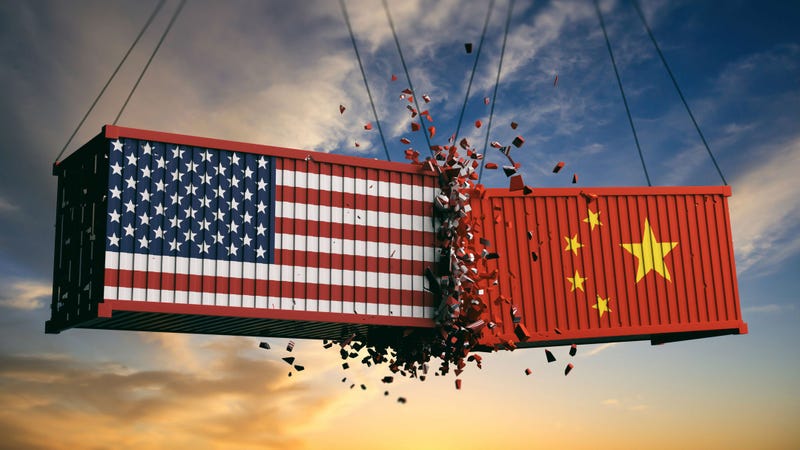
UPDATED: 9:30 a.m.
Wall Street did not react kindly. Futures numbers were in the deep red Monday morning, and CBS News Business Analyst Jill Schlesinger says this was a step back.
"As of Friday it looked like nothing could stop U.S. stock markets with growth strong, with the job market continuing to strengthen and with consumers seemingly ready to spend some money," Schlesinger said. "So, this development is certainly a disappointment for stock investors."
Schlesinger says the tweet threw Wall Street off balance.
"We were sort of expecting that this week would put the finishing touches on a U.S-China trade deal so this is a little bit catching everyone by surprise," she said.
The president also said there could be a 25-percent tariff on an addition $325 billion in goods.
"Chances are because of all the goods that have already been put in the tariff pool that these new tarrifs would include more consumer-based goods. That's what a lot of analysts are telling me this morning," Schlesinger said.
"Wall Street does not like to be surprised," said Michael Farr, a financial analyst based out of Washington.
And Jacob Parker, with the U.S.-China Business Council, says it puts the Chinese in a tough spot.
"It puts the Chinese government in a position where, if they do send a delagation to the United States and if they do come to a negotiated agreement by the end of the period, they have to contend with a domestic audience in China that would view this as a capitulation to the United States," Parker said.
Several news outlets reported China was thinking about delaying negotiations.

